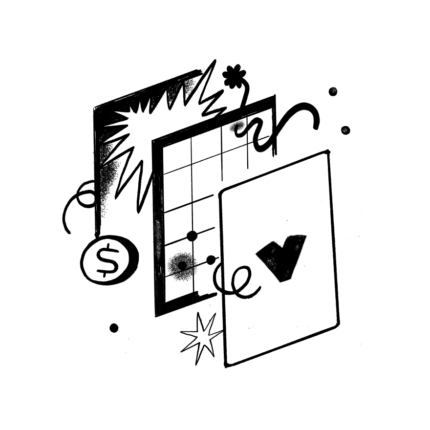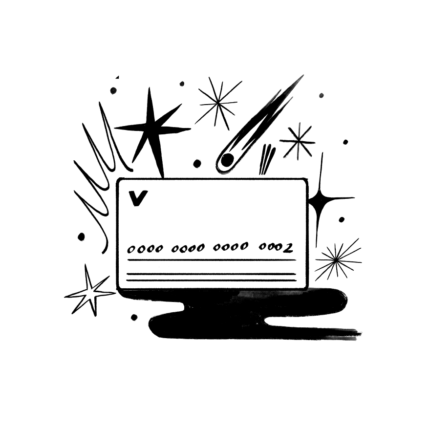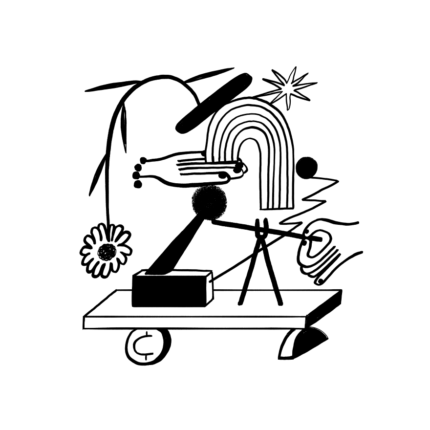
I waived health insurance and still only made $28k per year
My first job taught me… a lot! Especially about money management, financial wellness, and just how necessary it is to consider employer-offered benefits.
My first position out of college was as a grant writer for an arts and education nonprofit. It was 2014, I was 22 upon graduation, and experienced most relevantly in poetry and film (my concentrations). Many of my classmates, even economics majors(!), were having a difficult time locking down jobs. In a lot of ways, I felt lucky to find something at all.
This job’s first salary offer to me was $25k. After talking to my parents about the amount of money pushed my way, I countered: “I’m still on my parents’ health insurance. Can I forego your insurance package and get more per paycheck?” They agreed. I’d make $28k annually. I was stoked.
That $3k bump felt good in the immediate. But in hindsight… it wasn’t smart. All I was doing by adding to my annual salary was… yep, bringing more taxes to the party.
At 6 months, I asked for a raise and got it, which brought me to $32k. Yippee! A 22-year-old living in a small city and paying $600 in rent, with no secondary expenditures! I was actually saving monthly—like, $1,000-at-the-end-of-the-month savings! Even though some of my friends were already making $60k in the city, I felt like I was killing it. And in some ways, I was!
But now, five years later, I realize that given my initial offer, very little about how I dealt with my first job was fiscally intelligent. I could’ve put myself in a better position, by, say, asking our HR department (which was one person, but even still) more about my insurance and HSA options, or doing a little research about the long term effects of a health savings account.
Here’s Why I Should Have Taken that HDHP
It recently occurred to me that what my grant writer salary lacked in cold hard cash, it made up for in savings vehicles. Well, it would have.
Recently home for a weekend, I found my first contract—printed! Stapled!—in my “keepsake” drawer. In size 8-ish print on the second of its three pages read something about a health savings account. At 22, I’m sure I guffawed (“a what?”) and quickly sought out my parents’ advice on how I could get more money in the immediate.
Simple! Nix health insurance and whatever else they were offering alongside it. Done.
Now for My Mistake
What I didn’t understand when I read the words “health savings account” was, well, anything. But in particular, I wasn’t informed that by opting in for health insurance and its adjacent HSA, every dollar I could have contributed monthly, even if it was five bucks, I would have seen all of that money. And yes, having this HSA would have meant taking on the health insurance, and linked health savings account my company offered. And yes, that also likely would have meant foregoing that extra three-thousand-dollars I was so excited about.
But here’s the kicker: because HSAs are triple-tax advantaged, I could have saved tax-free, withdrawn for medical expenses tax-free, and, when it got to the point that I could invest, I might have even watched my funds grow tax-free. And I may have still gotten the same raise.
But the education wasn’t there. No one encouraged me to look further into an HSA, no one explained just how much I might be seeing on the other side of this (let’s face it) bummer of a salary. I just didn’t get it. Plain and simple.
And sure, my situation was a little funky. Because I was still on my mom’s health insurance, and she had an HSA, she was contributing the family maximum to her account every year, as was her employer. And for my mom, that’s great! But I was 22 and ready to become financially independent. Enrolling in my own high deductible health plan (HDHP) and opening my own HSA, contributing the max for an individual… well, that would have been a great way to fast-track myself towards financial freedom.
Live and Learn
I really hate that adage, live and learn, but when you’re in your late 20s, no longer paying $600 in rent and quickly realizing that life costs quite a bit, you start to think: ugh, it really would’ve been nice if I’d started saving right out of school. Oh! And my employer would have been contributing to my HSA, too, tax-free?! That’s a no-brainer.
I’ve learned a great deal in these past 5 years. And after all, health savings accounts were pre-teens, just 11 years old when I got my first job. Most people, myself included, didn’t truly understand just how effective in both the long and short term HSAs could be.
Well, better to understand that now than a few decades down the line, right? Live and learn.


